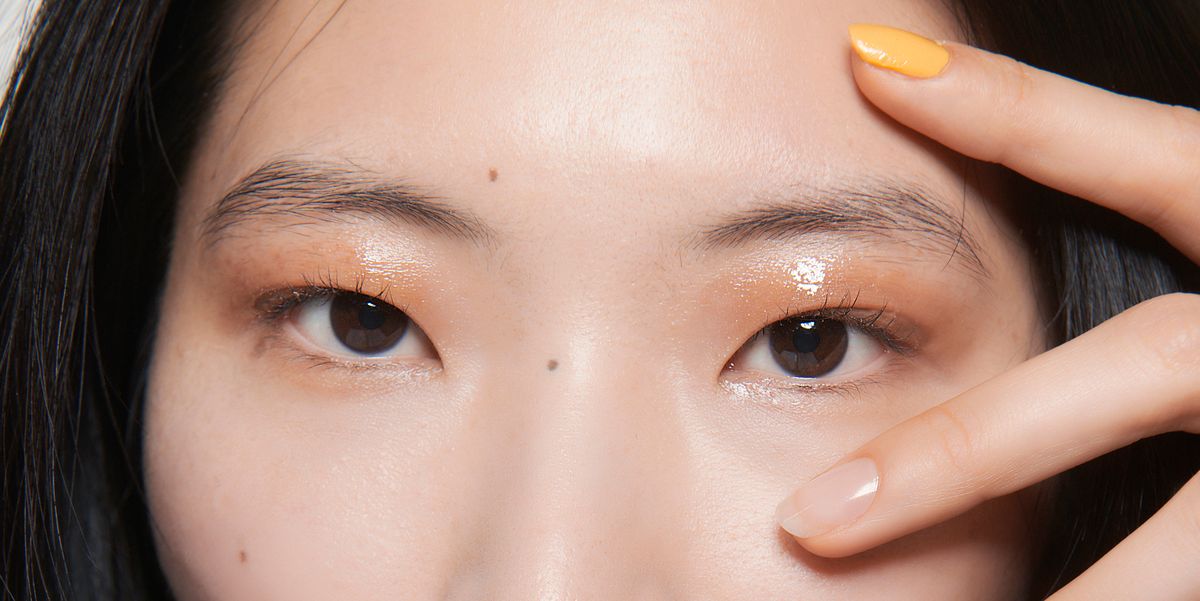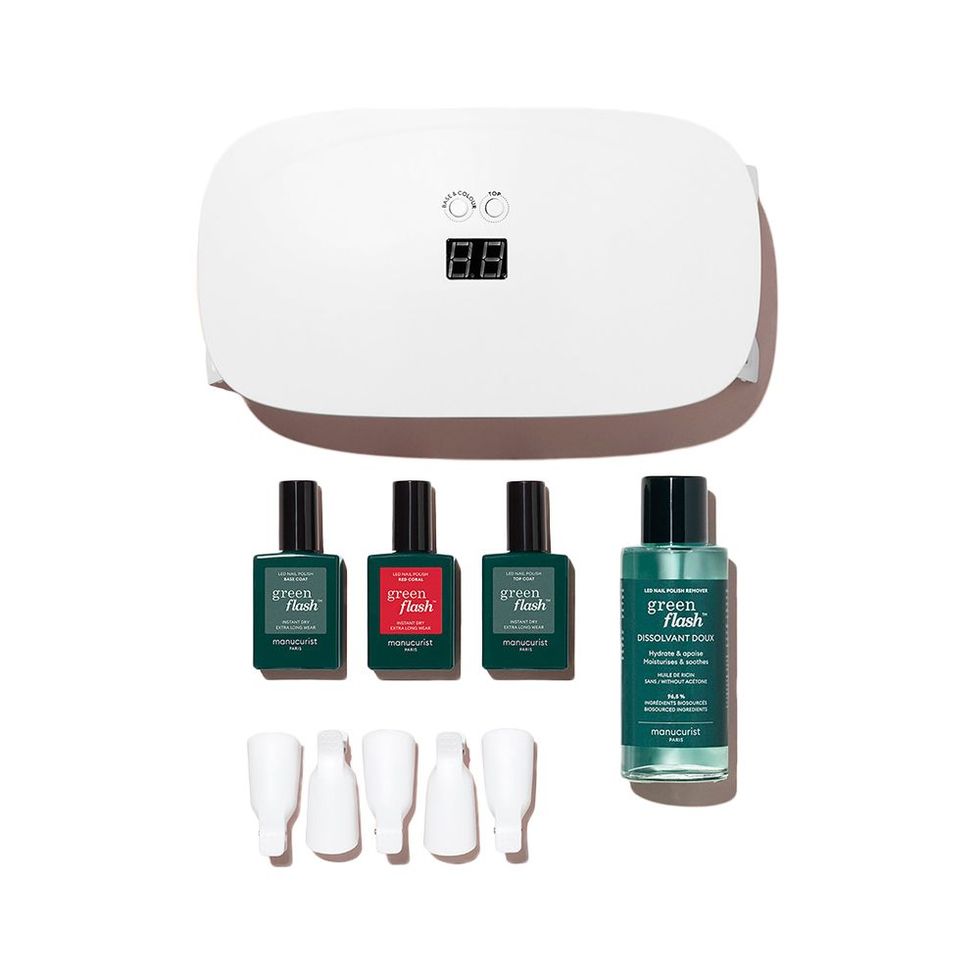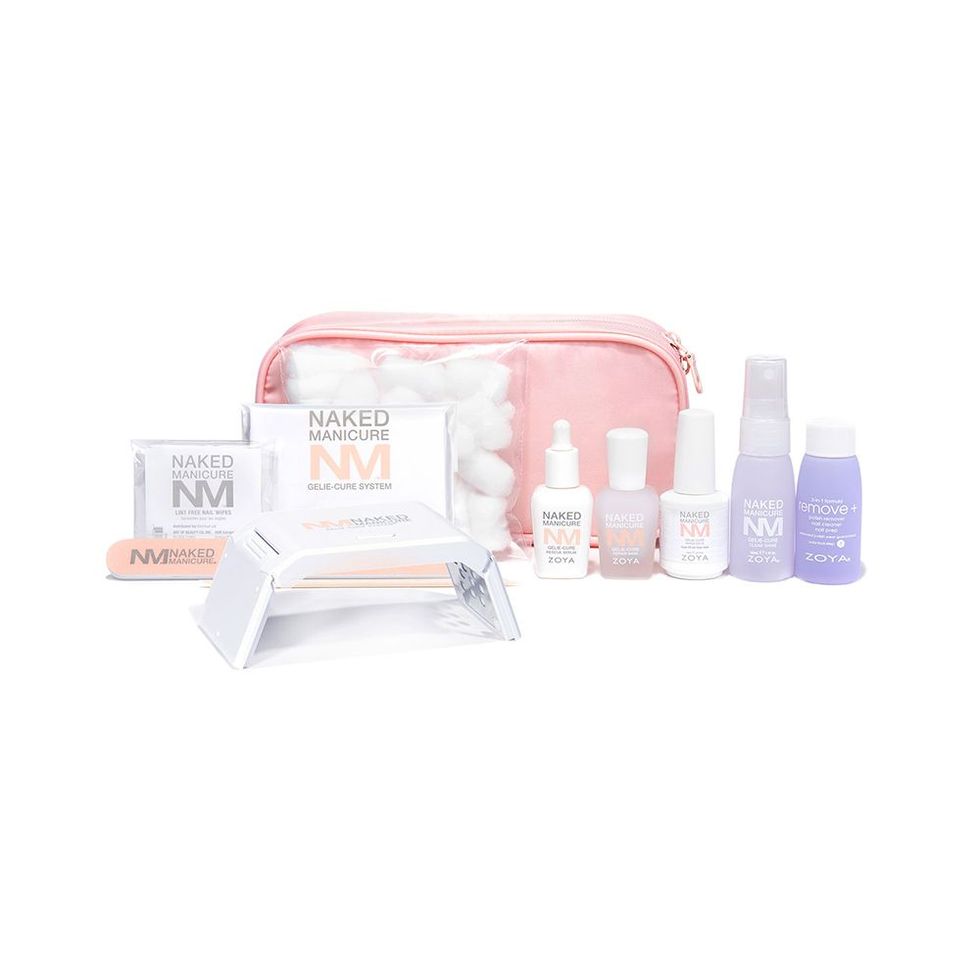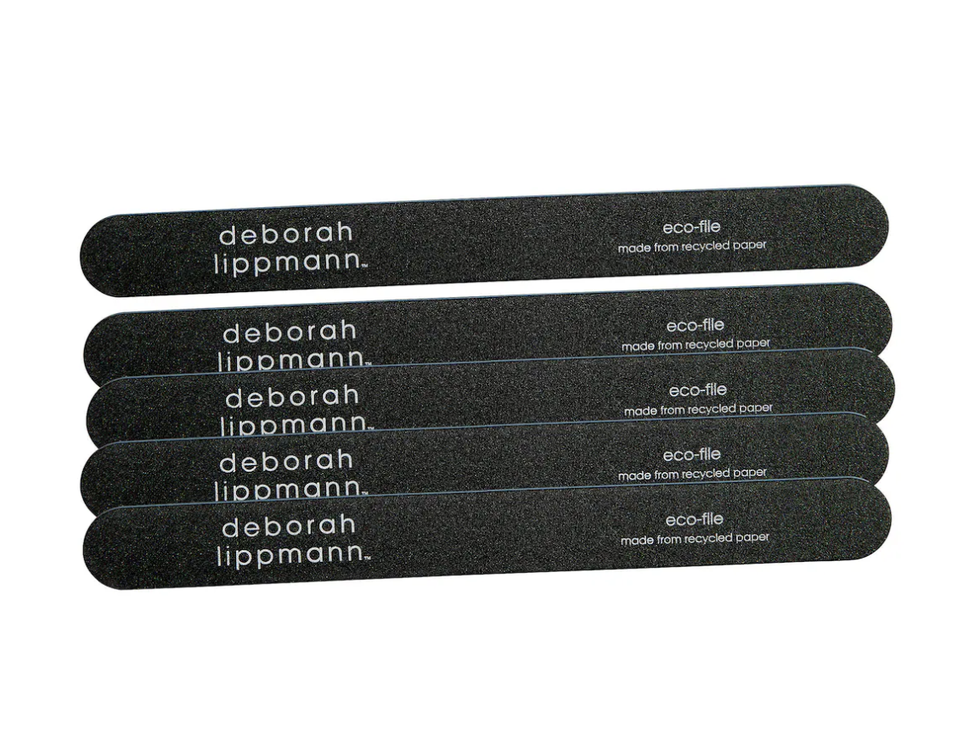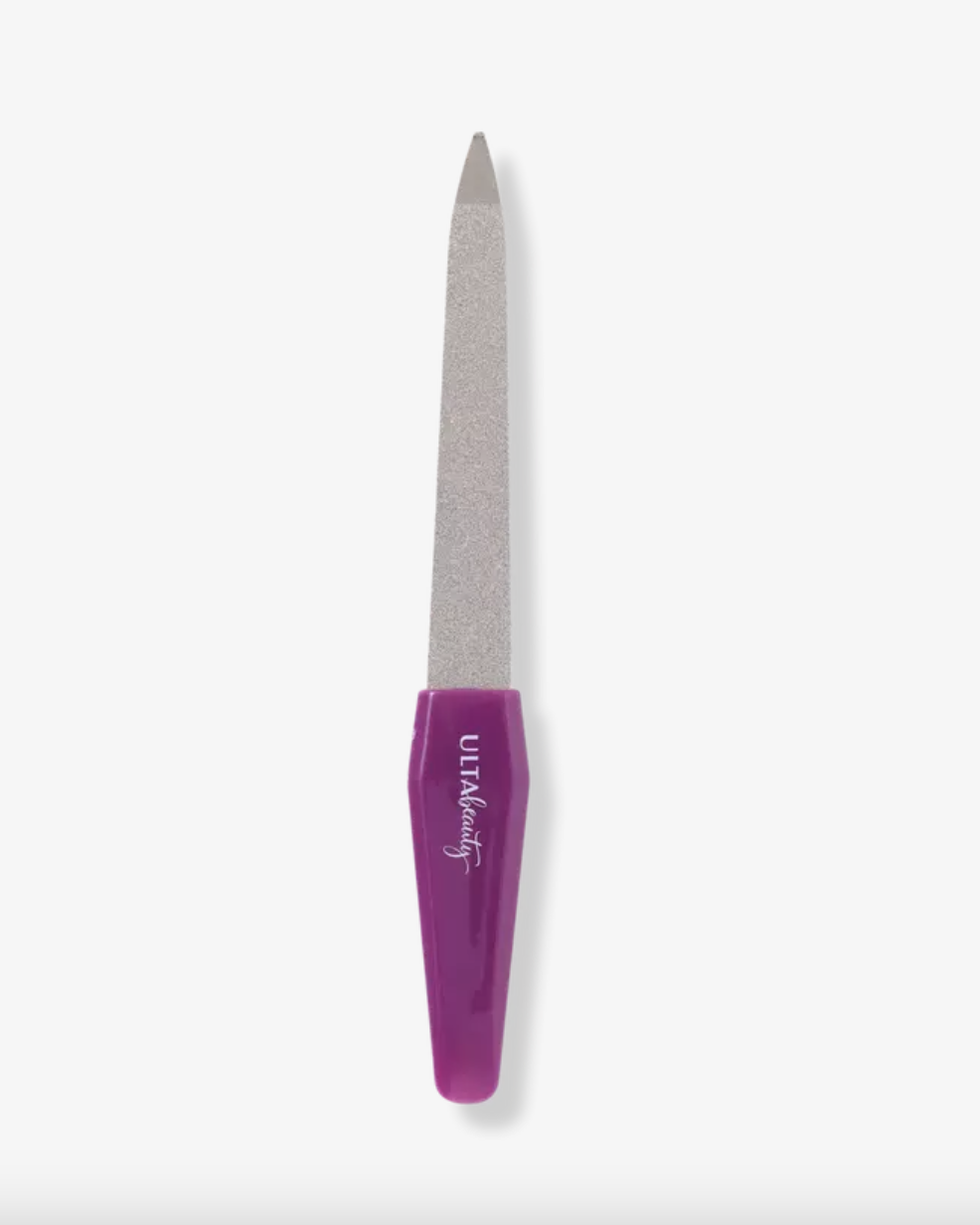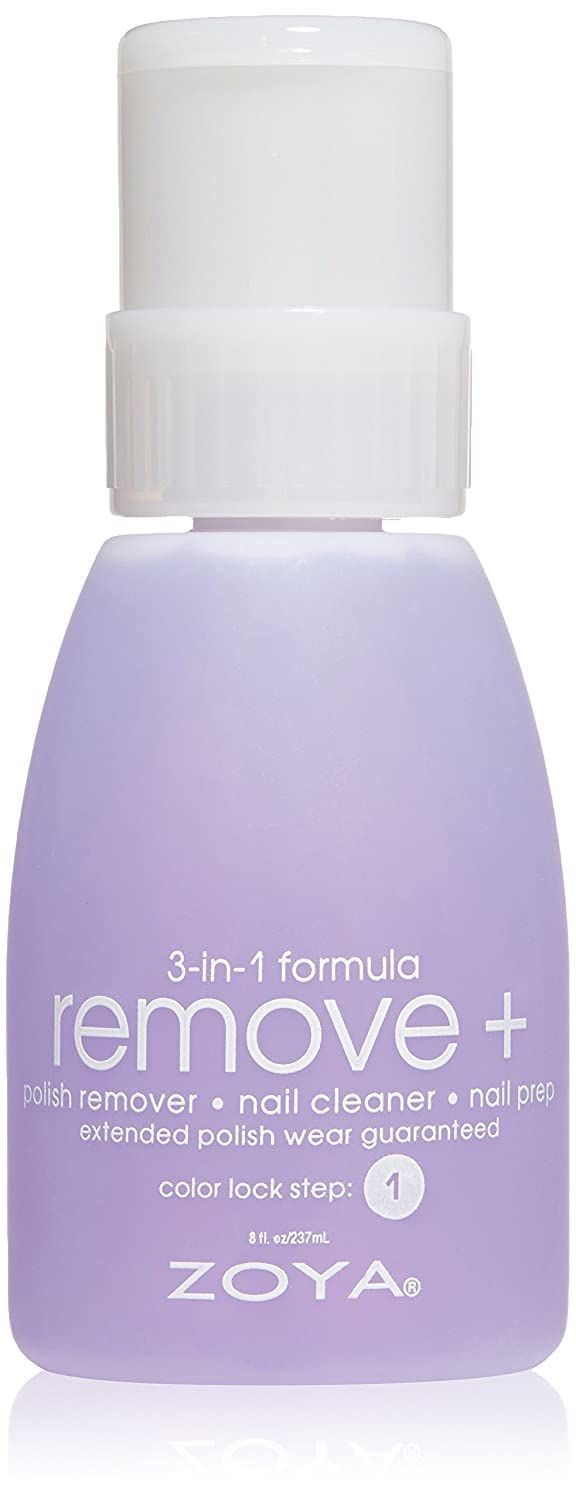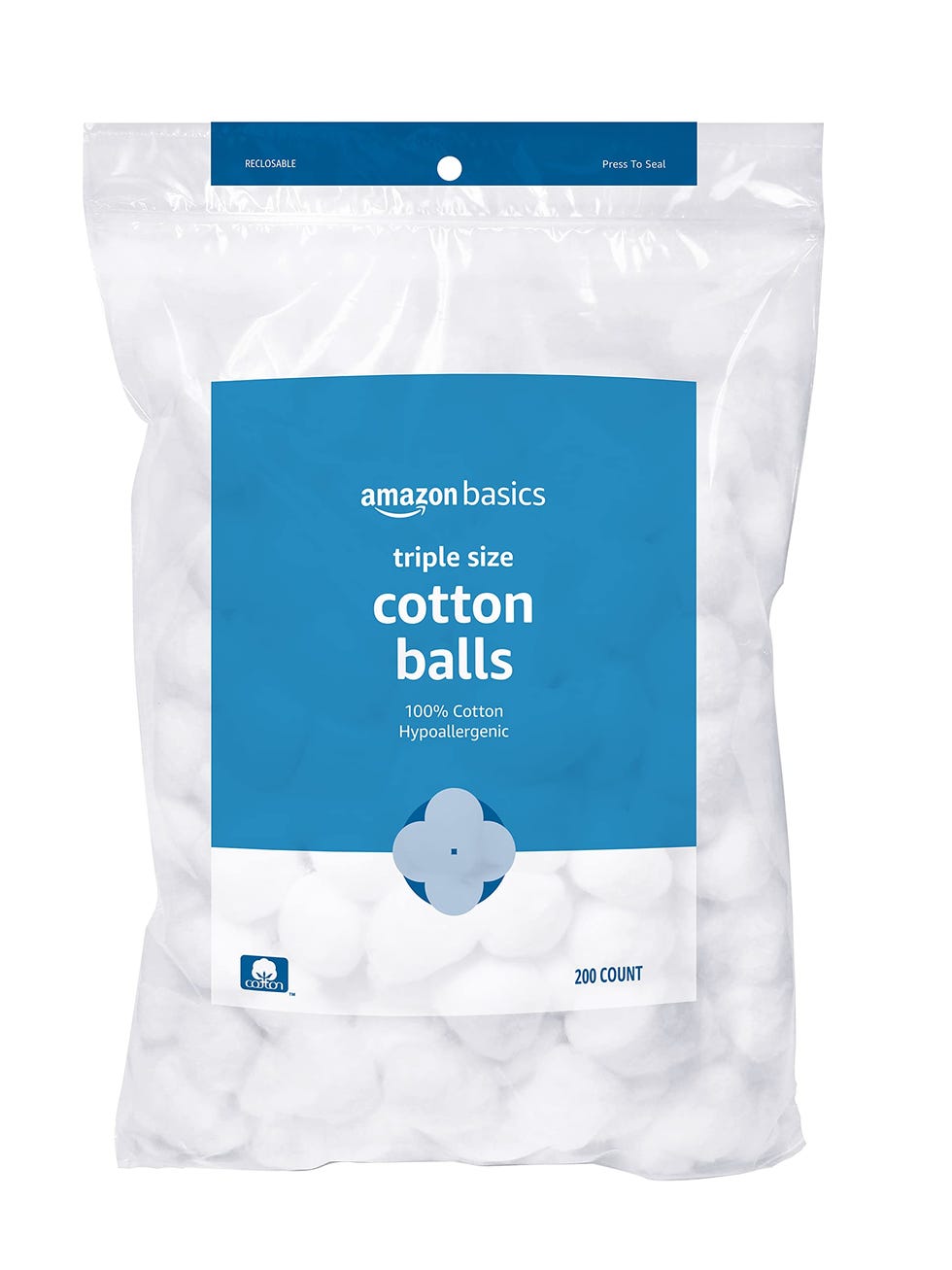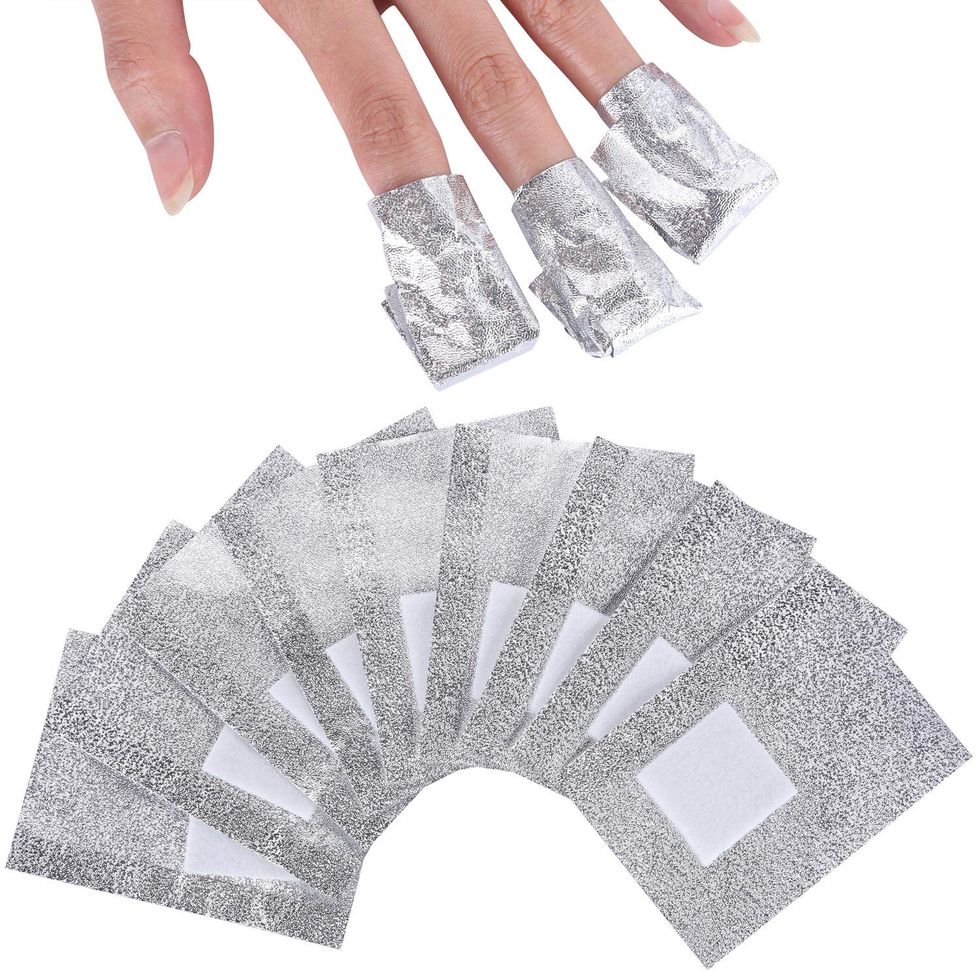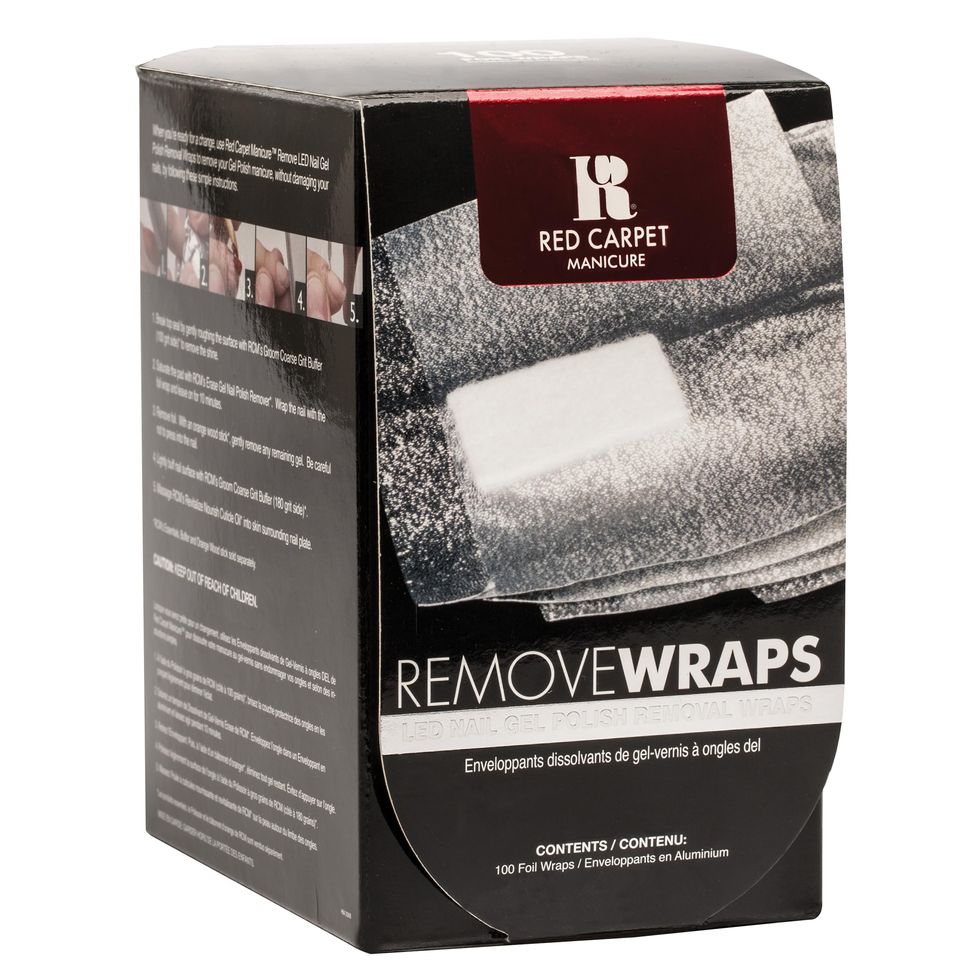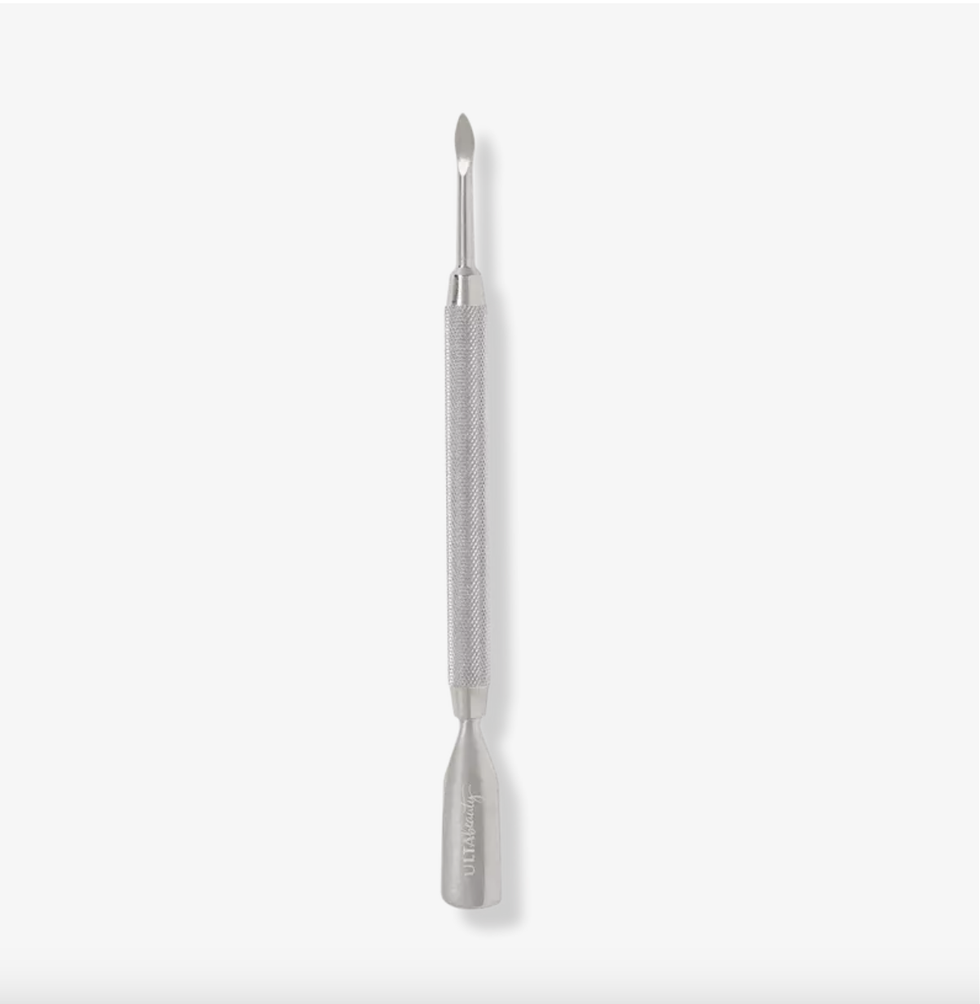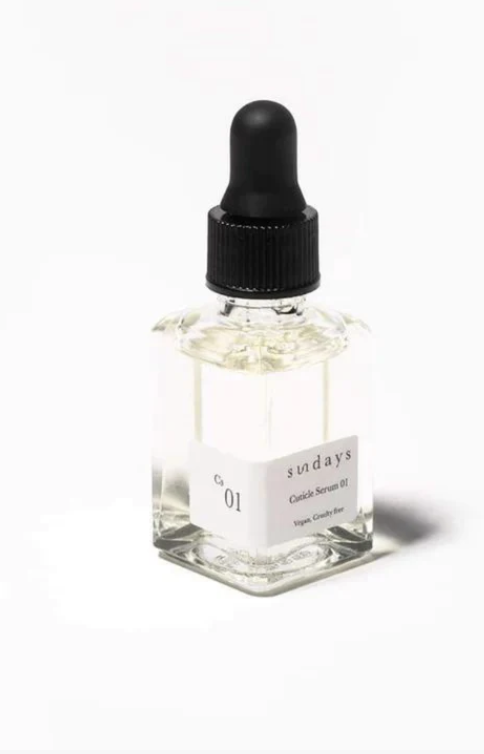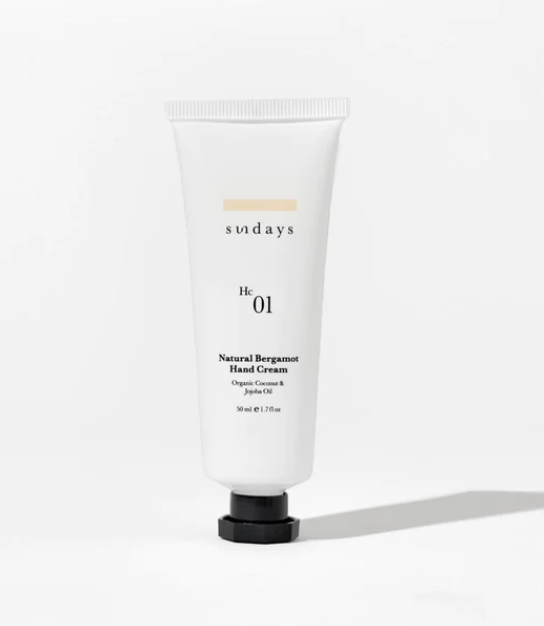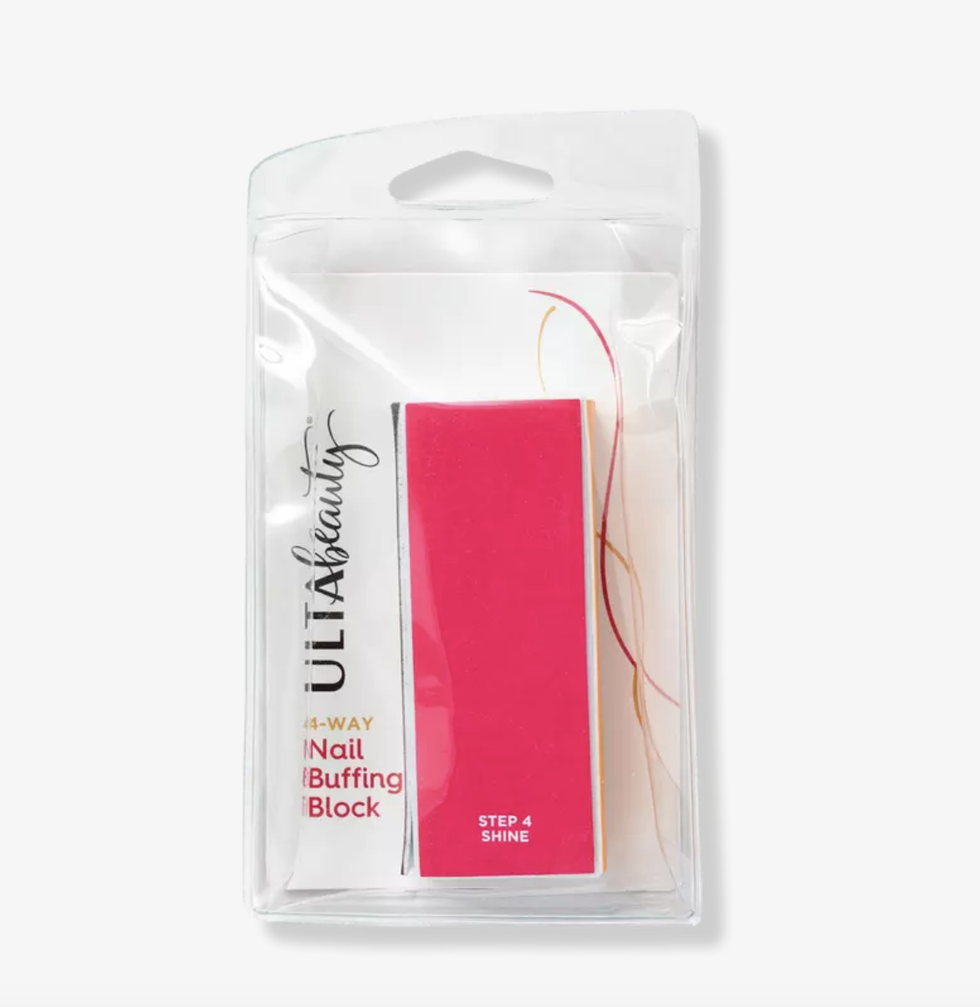Products You May Like
There’s nothing quite like the feeling of walking out of the nail salon with a fresh set of perfectly manicured gel nails; they’re smooth to the touch, glossy with a pristine shine, and, best of all, they’re practically chip-resistant. “Gel nail polish is a type of varnish that is cured using UV or LED lamps, which differs from traditional polish that is cured through extended contact with air,” says Amy Ling Lin, founder of Sunday Studio. Since gel polish is cured with UV or LED lamps, it’s much more durable in comparison to traditional nail polish.
However, as with many things that seem too good to be true, there are a few caveats. Bellacures marketing specialist Rianna Basurto tells ELLE.com that since gel polish is much thicker than regular lacquer, the removal process is much more involved. Unlike taking off traditional polish, you can’t just wipe away gel polish using acetone and a cotton pad. There’s a lot more time and effort that goes into dealing with gel polish, and if done improperly, you could potentially damage your nails.
We know that you’re not in the business of having damaged nails, so we’ve gone ahead and put together a thorough guide on how to safely and effectively remove gel nail polish at home. Ahead, you’ll find a step-by-step gel removal process, along with a few helpful tips and tricks from Lin and Basurto.
What is a gel manicure?
As mentioned earlier, unlike traditional nail polish, gel nail polish is cured under an LED or UV lamp. Not only does this process help gel nail polishes to dry faster, but the polish also transforms into a long-lasting layer that firmly adheres to the nail and can last up to weeks compared to regular lacquer.
What are the benefits of wearing gel nail polish?
“Gel nail polish tends to last longer than traditional polish, and the color is typically brighter and more vibrant,” Basurto explains. So, if you consider yourself to be a bit high-maintenance when it comes to your nails ( in other words, you can’t go a day without having your nails polished), then you might want to consider investing in gel manicures. “Because these manicures are long-lasting, you can limit the number of trips you make to your local nail shop, thus saving you money,” says Lin.
What are the risks of wearing gel nail polish?
There is no doubt that the benefits of getting gel manicures are enticing, but it’s also important to examine the drawbacks of using gel nail polish as well. “If you are frequently exposed to UV light, which cures the polish, it may be harmful to your skin and nails,” adds Lin. To protect yourself from UV exposure, Lin recommends applying sunscreen to your hands or wearing gloves while getting a gel manicure.
Another protective measure is to consider LED lights instead of UV lights. “I recommend opting for the LED option if you can, as it is safer for your skin,” Basurto advises. LED lights are often deemed safer than UV lights because they emit a lower level of UV rays. If you’re not careful enough, unprotected exposure to UV rays can potentially damage skin cells, so it’s essential to limit the frequency of your gel manicures if possible. “The more often you get gel manicures and pedicures, the more chances there are for potential damage, so it’s best to give your nails a break in between gel applications to allow them to breathe and recover,” says Lin.
Another risk of wearing gel nail polish is experiencing damage during the removal process. “If you do not know how to remove gel nail polish at home, it may damage your nails,” Lin shares. She also shares that you shouldn’t pick or peel at your nails, as peeling off gel polish might harm your nails. “When you peel off any nail addition, you take off layers of your nail plate, weakening your nails and causing them to chip more,” adds Lin. That’s why it’s crucial to remove your gel nail polish safely and with care.
What is the safest way to remove gel nail polish?
Step 1: File your nail bed with a nail file.
“First, you should file down the gel topcoat, which will make it easier to remove the polish with acetone,” Basturo notes. Lin explains that you’ll know when you’ve finished filing down the gel topcoat layer when the topcoat is no longer shiny and smooth.”Begin by filling your non-dominant hand’s gel topcoat, and with the flat face of a nail file, file your nail from the cuticle to the edge in a left-to-right motion, not a back-and-forth motion,” Lin explains.
Step 2: Soak cotton balls with acetone.
For the next step, you’ll want to use acetone and cotton balls to remove the gel nail polish. When applying the acetone to each cotton ball, use five to 10 drops of acetone to ensure the cotton ball is damp but not overly-soaked. “Cut out sections of each cotton ball that will cover the nail bed, making sure they’re thin and large enough,” says Lin. If the cotton ball is so large that it comes into contact with the surrounding skin or cuticles, you’ll want to trim it down. “Too much acetone on a cotton ball can cause moderate skin irritation, causing the skin to become red, dry, or cracked,” adds Lin.
Step 3: Wrap the tip of the finger in aluminum foil.
“Wrap each fingernail with the cotton ball in aluminum foil and leave it on for at least 10 minutes,” Basturo shares. The aluminum foil will help to keep the cotton ball in place.
Lin also mentions that the aluminum foil should be cut into pieces that are sizable enough to wrap around each finger.
Step 4: Use a cuticle stick to remove gel polish.
Next, you’ll want to use a cuticle stick to remove the excess gel nail polish. “With a metal cuticle pusher or an orangewood stick, gently shake the gel polish off one nail at a time,” says Lin. If the gel isn’t budging, there’s no need to worry—simply re-apply the cotton balls to your nails. “Once you’ve soaked, the gel polish should come off easily, but if it is still hard to remove, soak the nail bed with the acetone for five more minutes,” adds Basturo.
Step 5: Buff and hydrate your nails.
For the last step, you’ll want to lightly buff your nails to smooth out the surface and remove any remaining gel polish. “Remember that excessive buffing of fingernails can thin the nail plate, weaken your nails, and make gel polish tough to adhere to,” Lin notes. Be gentle with your nails and avoid harsh buffing.
Another thing you’ll want to keep in mind is that it’s essential to rehydrate your nails after all is said and done. “After you finish removing the polish, apply cuticle oil as the acetone will dry out your nail,” says Basurto. She explains that applying cuticle oil can help to make your nail beds stronger and healthier. You should also consider using cuticle serum and hand cream as Lin explains that the serum will help to heal the nail bed and bring back the brightness to the skin around your nails, while the hand cream will restore your skin’s moisture.
Meet The Experts
Amy Ling Lin is the founder of Sundays Studio,is a NYC-based nail care brand focused on wellness.
Rianna Basurto is the marketing specialist at Bellacures, a well known nail salon located in several cities across California and Texas.
Why Trust Elle Beauty
As a leading publisher of fashion, lifestyle, and beauty content, ELLE.com is committed to highlighting the best products in various categories by personally testing the latest and most innovative products, interviewing countless experts, and vetting customer-loved items. For this piece, freelance writer Lauren Tappan consulted several nail experts to discover the best ways to remove gel nail polish.
